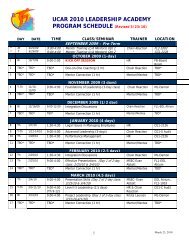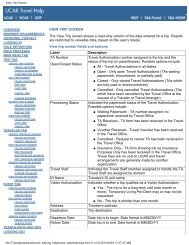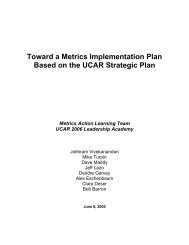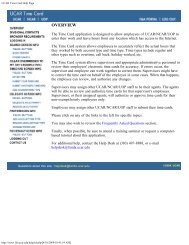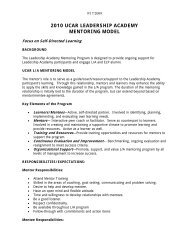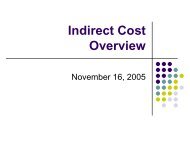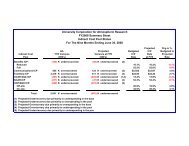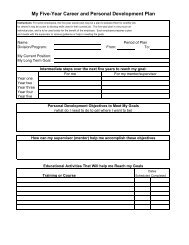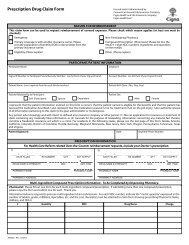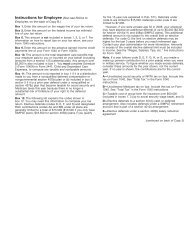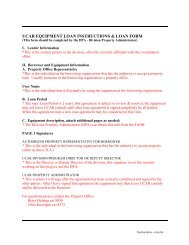CIGNA High Deductible Health Plan (HDHP) - UCAR Finance ...
CIGNA High Deductible Health Plan (HDHP) - UCAR Finance ...
CIGNA High Deductible Health Plan (HDHP) - UCAR Finance ...
Create successful ePaper yourself
Turn your PDF publications into a flip-book with our unique Google optimized e-Paper software.
Medicare Eligibles<br />
<strong>CIGNA</strong> will pay as the Secondary <strong>Plan</strong> as permitted by the<br />
Social Security Act of 1965 as amended for the following:<br />
(a) a former Employee who is eligible for Medicare and<br />
whose insurance is continued for any reason as<br />
provided in this plan;<br />
(b) a former Employee's Dependent, or a former<br />
Dependent Spouse, who is eligible for Medicare and<br />
whose insurance is continued for any reason as<br />
provided in this plan;<br />
(c) an Employee whose Employer and each other<br />
Employer participating in the Employer's plan have<br />
fewer than 100 Employees and that Employee is<br />
eligible for Medicare due to disability;<br />
(d) the Dependent of an Employee whose Employer and<br />
each other Employer participating in the Employer's<br />
plan have fewer than 100 Employees and that<br />
Dependent is eligible for Medicare due to disability;<br />
(e) an Employee or a Dependent of an Employee of an<br />
Employer who has fewer than 20 Employees, if that<br />
person is eligible for Medicare due to age;<br />
(f) an Employee, retired Employee, Employee's<br />
Dependent or retired Employee's Dependent who is<br />
eligible for Medicare due to End Stage Renal Disease<br />
after that person has been eligible for Medicare for 30<br />
months;<br />
<strong>CIGNA</strong> will assume the amount payable under:<br />
• Part A of Medicare for a person who is eligible for that Part<br />
without premium payment, but has not applied, to be the<br />
amount he would receive if he had applied.<br />
• Part B of Medicare for a person who is entitled to be<br />
enrolled in that Part, but is not, to be the amount he would<br />
receive if he were enrolled.<br />
• Part B of Medicare for a person who has entered into a<br />
private contract with a provider, to be the amount he would<br />
receive in the absence of such private contract.<br />
A person is considered eligible for Medicare on the earliest<br />
date any coverage under Medicare could become effective for<br />
him.<br />
This reduction will not apply to any Employee and his<br />
Dependent or any former Employee and his Dependent unless<br />
he is listed under (a) through (f) above.<br />
Domestic Partners<br />
Under federal law, the Medicare Secondary Payer Rules do<br />
not apply to Domestic Partners covered under a group health<br />
plan when Medicare coverage is due to age. Therefore, when<br />
Medicare coverage is due to age, Medicare is always the<br />
Primary <strong>Plan</strong> for a person covered as a Domestic Partner, and<br />
<strong>CIGNA</strong> is the Secondary <strong>Plan</strong>. However, when Medicare<br />
coverage is due to disability, the Medicare Secondary Payer<br />
rules explained above will apply.<br />
HC-COB1 04-10<br />
Expenses For Which A Third Party May<br />
Be Responsible<br />
This plan does not cover:<br />
• Expenses incurred by you or your Dependent (hereinafter<br />
individually and collectively referred to as a "Participant,")<br />
for which another party may be responsible as a result of<br />
having caused or contributed to an Injury or Sickness.<br />
• Expenses incurred by a Participant to the extent any<br />
payment is received for them either directly or indirectly<br />
from a third party tortfeasor or as a result of a settlement,<br />
judgment or arbitration award in connection with any<br />
automobile medical, automobile no-fault, uninsured or<br />
underinsured motorist, homeowners, workers'<br />
compensation, government insurance (other than Medicaid),<br />
or similar type of insurance or coverage.<br />
Subrogation/Right of Reimbursement<br />
If a Participant incurs a Covered Expense for which, in the<br />
opinion of the plan or its claim administrator, another party<br />
may be responsible or for which the Participant may receive<br />
payment as described above:<br />
• Subrogation: The plan shall, to the extent permitted by law,<br />
be subrogated to all rights, claims or interests that a<br />
Participant may have against such party and shall<br />
automatically have a lien upon the proceeds of any recovery<br />
by a Participant from such party to the extent of any benefits<br />
paid under the plan. A Participant or his/her representative<br />
shall execute such documents as may be required to secure<br />
the plan’s subrogation rights.<br />
• Right of Reimbursement: The plan is also granted a right of<br />
reimbursement from the proceeds of any recovery whether<br />
by settlement, judgment, or otherwise. This right of<br />
reimbursement is cumulative with and not exclusive of the<br />
subrogation right granted in paragraph 1, but only to the<br />
extent of the benefits provided by the plan.<br />
Lien of the <strong>Plan</strong><br />
By accepting benefits under this plan, a Participant:<br />
• grants a lien and assigns to the plan an amount equal to the<br />
benefits paid under the plan against any recovery made by<br />
or on behalf of the Participant which is binding on any<br />
attorney or other party who represents the Participant<br />
whether or not an agent of the Participant or of any<br />
V5<br />
36<br />
my<strong>CIGNA</strong>.com



